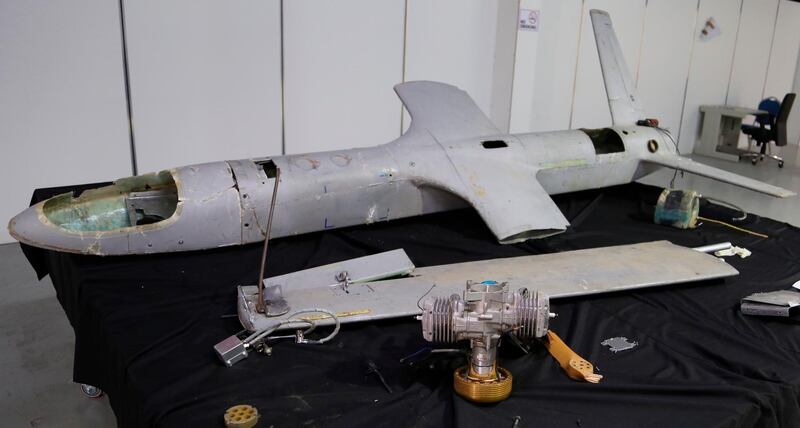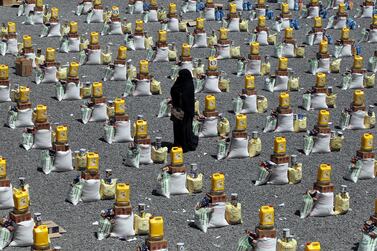Yemen's Houthi rebels targeted the southern Saudi city of Najran with a bomb-carrying drone on Monday night.
Arab Coalition spokesman Col Turki Al Malki said the Houthis had aimed at a civilian site in Najran.
Houthi-backed Al Masirah TV claimed the attack was launched on an arms depot at the Najran airport.
Col Al Malki said there would be a "strong deterrent" against further attacks and described the Houthis as the "terrorist militias of Iran".
Similar Houthi attacks on Saudi Arabia have sparked retaliatory air strikes on Houthi targets across Yemen.
Last week, Saudi Arabia reported that armed drones struck two oil pumping stations. In response, coalition aircraft bombed Houthi positions around the Yemeni capital, Sanaa.
The attack on the Saudi city of Najran came after Iran announced it had quadrupled its uranium-enrichment production capacity amid tension with the US.
On Monday, US President Donald Trump and Iranian Foreign Minister Javad Zarif exchanged threats and taunts on Twitter.
Under the 2015 nuclear deal, Iran is confined to storing 300 kilograms of low-grade enriched uranium. Tehran's stockpile now is unclear.
Iranian President Hassan Rouhani told a group of clerics that he was seeking wartime executive powers to better deal with an "economic war" triggered by the Trump administration's pullout from the 2015 nuclear deal and increasing US sanctions, Iranian state news agency Irna reported.
Iranian nuclear officials stressed that the uranium would be enriched to only the 3.67 per cent limit set under the 2015 nuclear deal with world powers, making it suitable for a power plant but far below the 90 per cent needed for an atomic weapon.
Saudi Arabia also said this week that it had intercepted two missiles fired towards Makkah by the Houthis.
The rebels have carried out hundreds of such rocket attacks over the course of the four-year conflict, but the frequency has increased along with tension in the region.
Iran is trying to show its reach in the region, said Miriam Goldman Eps, head of intelligence at Le Beck consultancy in Bahrain.
"Like the recent drone strikes against pumping stations, this is one of the ways that Iran is sending a message to the US while still avoiding crossing a line that would warrant a significant response," Ms Goldman Eps said.
She said that although the Houthis had finally withdrawn from Hodeidah port, six months after the Sweden Agreement, the recent attacks showed that they were not working towards a political solution.
"Continued attacks against Saudi amid these increasing tensions raises the chances for further violence and rolling back the limited progress made," Ms Goldman Eps said.
Saudi Arabia and the UAE are leading an Arab Coalition that intervened in Yemen in 2015 to try to restore the internationally recognised government, which was pushed out of Sanaa by the Houthis in late 2014.







